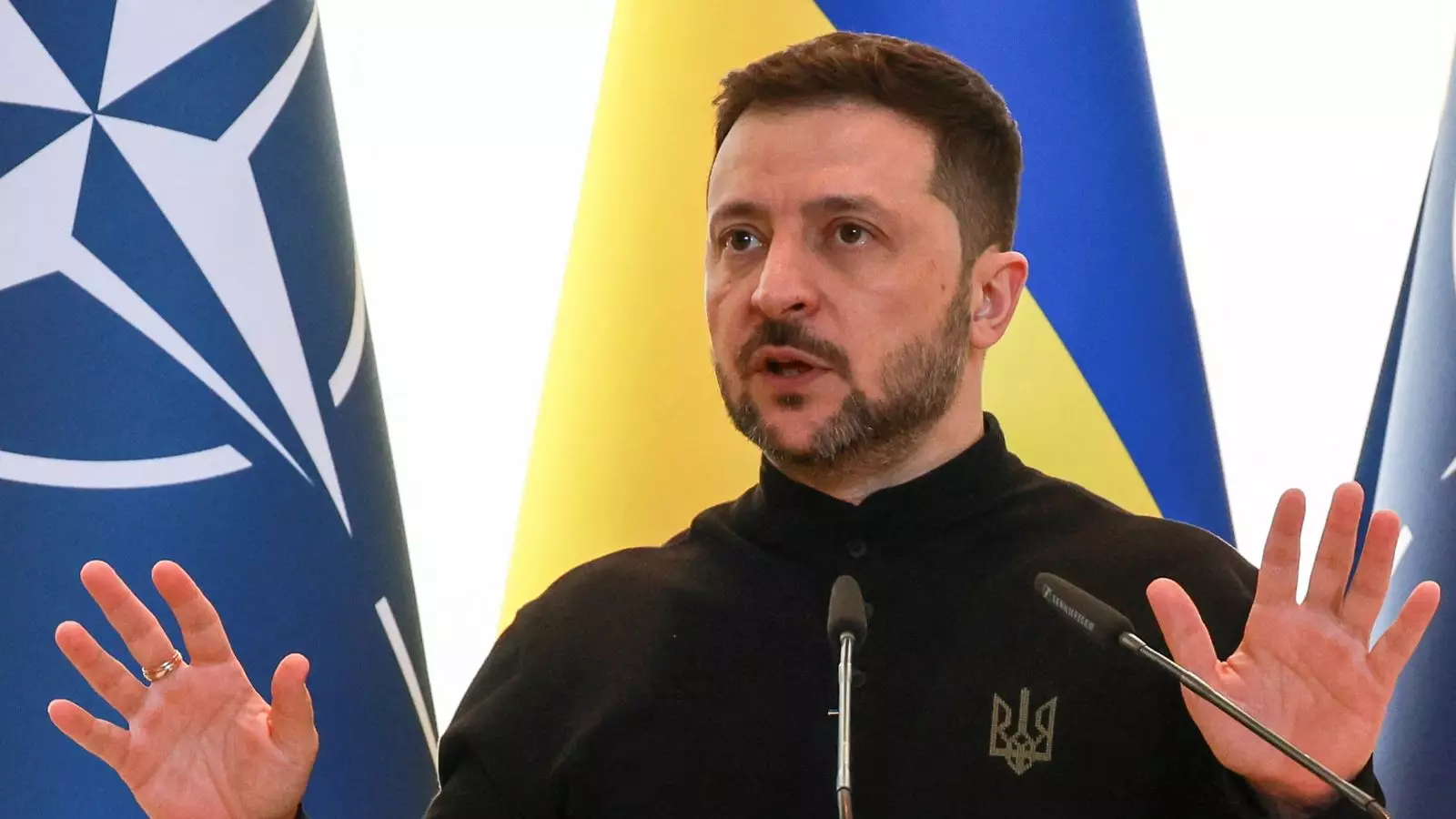In a world where diplomacy feels increasingly fragile, the recent phone call between Sir Keir Starmer and Volodymyr Zelenskyy presents a glimmer of hope. As the conflict in Ukraine spirals further into a humanitarian catastrophe, such communications become pivotal. Starmer’s staunch reiteration of “iron-clad support for Ukraine” demonstrates a commitment that goes beyond mere political posturing. It suggests a genuine effort to bolster Ukraine’s fight against Russia’s indiscriminate aggression, a fight that, unfortunately, has yet to see light at the end of the tunnel.
Both leaders’ discussions took place on Easter Monday, a day typically associated with renewal and hope. Irony drenched the occasion as it contrasted sharply with the grim realities of war. A Downing Street spokesperson communicated that the UK stands firm in supporting Ukraine’s calls for Russia to commit to a full ceasefire—words that resonate, albeit with a sense of skepticism in an arena where broken promises have become the norm. It begs the question: are we being naive to think that words can translate into lasting peace?
A Charade of Negotiations
Vladimir Putin’s sudden openness to bilateral talks under the pretext of a “brutal war” that he aggressively instigated raises alarm bells rather than optimism. The concept of Russia seeking dialogue should be viewed through a lens of caution. If history is any indicator, Putin’s “positive attitude” towards a truce could simply be a strategic maneuver, a classic case of political theater designed to buy time. He uses grand gestures of diplomacy while continuing military operations that undermine any semblance of genuine peace efforts.
Zelenskyy’s assertions of Russia violating ceasefires hundreds of times in a single day demonstrate the severe power imbalance that pervades these discussions. This constant breach of mutual agreements shows that for Russia, the term “ceasefire” seems to morph into a convenient tool to prolong and escalate the conflict rather than a sincere effort to diminish hostilities.
The Role of External Influences
Adding another dimension to the discourse around the conflict is the involvement of figures like Donald Trump, who has also expressed a desire for peace. While the notion of a truce may seem appealing, it is imperative to question the motivations behind such calls for peace. Trump’s comments—encouraging quick resolutions so that both Ukraine and Russia can come to the table for business—underscore a reduction of complex human suffering to mere economic transactions. One can only wonder if his interest is truly in peace or if it lies in bolstering his own political agenda.
This commodification of peace is troubling and diminishes the gravity of the humanitarian crisis at hand. The conflicts’ complexities cannot simply be negotiated away like commercial contracts; lives hang in the balance, and it is expensive to forget that.
The Urgency of Genuine Peace
The road to establishing a just and lasting peace is long and littered with historical baggage. Starmer’s dialogue with Zelenskyy hints that this path is still navigable, but the optimism must be tempered with the urgency of action. The critical question remains: How much longer will both nations endure the pains of war before authentic resolutions emerge? The coalitions of nations in solidarity with Ukraine must act decisively.
Peace isn’t merely the absence of war—it’s about addressing the root causes of conflict and ensuring accountability for those who perpetrate violence. The potential for a protracted engagement in talks may lead to weariness and disillusionment. At this juncture, both Ukraine and its allies must proceed with caution, ensuring that peaceful dialogues do not become a mere façade for a continuing war.
While one wishes for serenity in the region, the reality is that every day, the lines of dialogue grow thinner while the fires of conflict rage on. Thus, the narrative calls for something more than polite conversations—it demands that world leaders embody true commitment to realpolitik that favors humanitarian dignity over political gains.

Leave a Reply